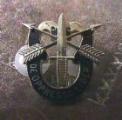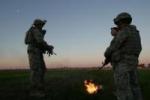
Originally Posted by
Entropy

BW,
When are policmakers ever so enlightened? I think your theory is mostly sound but, as is often the case, people (politicians in particular) don't conform well to theories.
Secondly, one shouldn't assume there is only one solution to a problem and governance may not be the best. So I wonder if you are replacing one set of blinders with another since it seems you are arguing that, once deconstructed, these conflicts are always about governance.
Third, the US, as a third party in these conflicts, must operate within the constraints set by the host government or take our ball and go home. That latter option usually isn't feasible, so we end up with the nasty sausage-making business of trying to help and reform the host government at the same time. Take Afghanistan. For better or worse, our strategy is wedded to that government and, by extension, the governance it can potentially provide.
Fourth, as I've said before, there are limits to what "governance" can do. You may have the best government in history and there will still be people and groups who would rather go their own way and don't want any part. What do you do then? In Afghanistan, for example, this isn't uncommon.
Finally, and this is a point I've brought up before (and related to my third point), the nature of governance matters. What is it when one tries to impose an alien form of governance upon a populace? Is that governance or imperialism? That is happening in Afghanistan too. The West operates from a mindset that "Afghanistan" is a single nation with the clearly defined borders shown on a map. It has never been thus and there are many populations within that border who aren't interested in ceding authority to Kabul. How does your theory deal with populaces that are largely self-governing and neither need nor desire any "national" form of governance? These populations are not rebelling against "poor governance" since governance (outside their group) never really existed.
You see, I'm skeptical of this whole "governance" thing when it comes to Afghanistan. Our attempts to extend governance fail miserably because we don't understand the local conditions and we operate with a Western concept of what governance is supposed to be. We are wedded to the idea of a strong central government which can "control" the entire "nation" of Afghanistan and your theory would seem to argue that all we need is more governance in order to bring this to pass. It seems likely that Afghanistan, a Frankenstein colonial creation, may be an inherently unviable state. If that's the case, then it seems to me that less "governance" is required, not more.
Wilf,
Actually, if you have a burst pipe, the first thing you do is turn off the water - otherwise you'll have a lot more than the plumber coming to your house.







 ). In this discussion I wrote:
). In this discussion I wrote:




Bookmarks